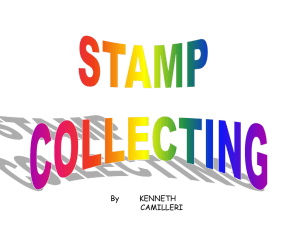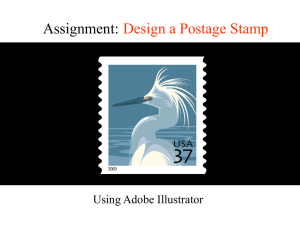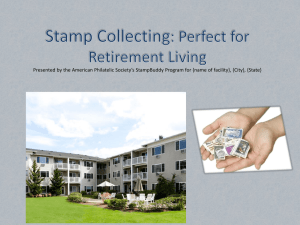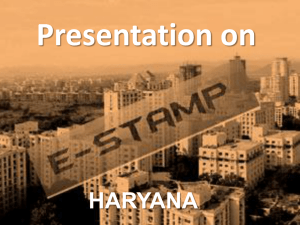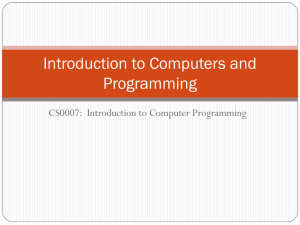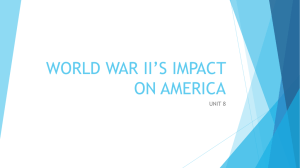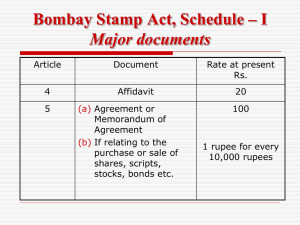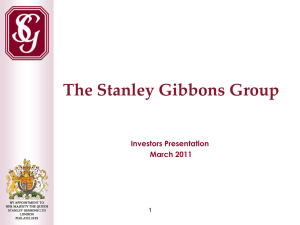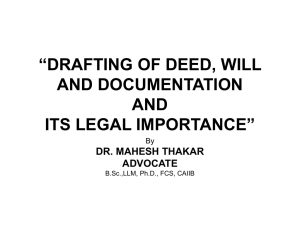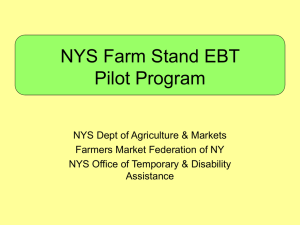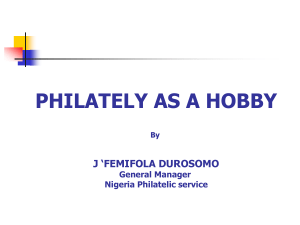Genealogical Philately Presentation
advertisement
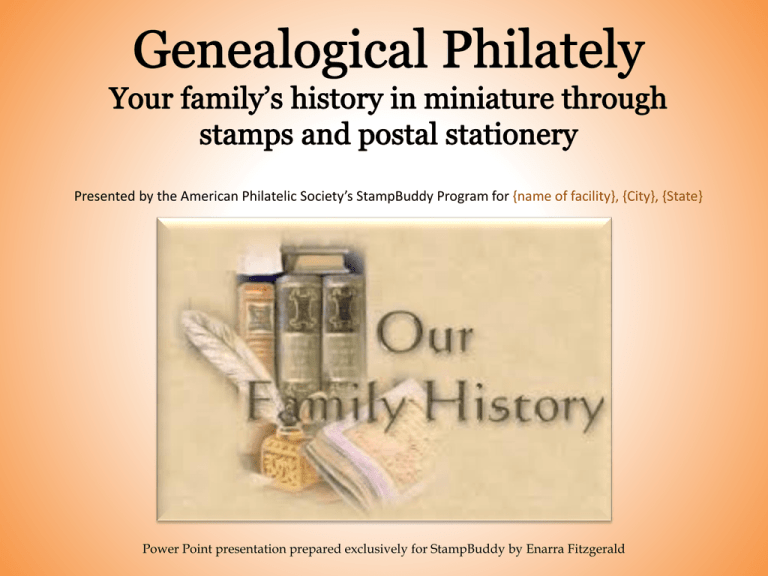
Presented by the American Philatelic Society’s StampBuddy Program for {name of facility}, {City}, {State}
Power Point presentation prepared exclusively for StampBuddy by Enarra Fitzgerald
What was the world’s first
government issued stamp?
Where is it from?
What year was it created?
Who used it?
Can we find correspondence
with this old stamp?
Did our ancestors use this
issue?
What can we learn from such
Philatelic items?
Stamps teach us stories of war…
Where were these stamps created?
Who used them?
What are the symbols on the sides?
What do the symbols mean?
How did this stamp effect our ancestors?
Many stamps trace the transition from
colonial times to independence
Which stamp was issued right after the end of WWI?
Which stamp started out as a charity label?
Which stamp shows the name “Jewish State” instead of “Israel”?
What can we learn from this history?
An early U.S. airmail stamp with map of
the U.S.
100th Anniversary of the Louisiana
Purchase.
This Chinese map stamp was never
issued because Taiwan is not colored red!
The few that exist are very rare.
In the past, mailing written paper was the only means by
which to share thoughts and information across distances.
Whether it be sent by courier, horseback, ship or, eventually
air, millions and millions of letters have crossed the planet
since the first government issued adhesive postage stamp was
created in 1840 in Great Britain.
In one way or another, mail has affected every family on the earth.
As we search for our heritages, we must not neglect philately.
Old letters, postcards, bills and documents provide us with a wealth of
information that can be gleaned in no other way. Addresses, places of
employment as well as personal correspondence open up the past and
allow us to peer into our own history and suddenly bring it to life.
Postal stationery can reveal a treasure trove of family
information such as…
An immigrant's home village before coming to the U.S.
A person’s military service details (Civil War, WWI, WWII)
The details of a person’s work life and employment information
A family’s photographs on a real photo postcard
Postcards can also reveals travel information and possible
friendships or connections.
For example:
An immigrant's home village before
coming to the U.S.
The location of the postmark on this envelope, by itself, could give a
philatelist a clue on where to start searching for the birthplace of their
ancestor.
(This slide and information curtesy of www.Philgen.org)
A persons military service details (Civil War,
WWI, WWII) can be traced through paper
records that were mailed.
The details of a person’s work life and
employment information also written
A family’s photographs on a photo postcards
Postcards can also reveal travel information and
possible friendships or connections.
Look at the stamps or covers you have been given….
What countries are they from?
How old are they?
What time periods were they created for?
What can they teach us about our history?
Work on stamps any time, day or
night in any season.
Choose exactly where you want to
start.
Affordable.
Trade postal stationery & stamps
with other historians.
Buy stamps without traveling.
Great local stamp club and stamp
shows.
The world is your oyster. Collect the world!
Collect stamps from the U.S. (very popular)
Collect stamps from your family’s country
Collect stamps from the year of your birth
Collect the “Classical Period” 1840-1940
Collect stamps based on topics like:
Not only your family history but…
Medicine
Famous inventors
Embroidery on stamps
Flowers
Animals and pets or insects on stamps
Shapes like triangles
Broadway shows on stamps
Bart Simpson on stamps (just kidding)
Trade with other collectors.
Buy stamp mixtures.
APS Circuit books.
Go to stamp club meetings.
Go to stamp shows.
Stamp approvals.
Buy stamps online and
online auction site.
Store
Glassine envelopes
Stock books
Stock cards
Display
Buy a stamp album
Make your own stamp album
Stock Books
Magazines
Linn’s Stamp News
American Philatelist
Catalogs
Scott Standard Postage Stamp
Catalog
Scott Classic
Your local stamp club:
Local Club Society meets
twice a month and has its
own clubhouse.
Northwest Philatelic
Library
American Philatelic
Research Library
Lots of stamp societies
Internet: Lots of stamp
blogs
APS is the largest stamp society in the world with
33,000+ members.
When you become an APS member you get:
The American Philatelist magazine every month
Free access to the American Philatelic Research
Library
Stamp circuit books
Access to StampStore
StampBuddy Service (APS membership not
required)
APS membership is recognized throughout the hobby as
an indicator of ethical dealing and integrity.
Applications available today.
StampBuddy is a national APS program that
provides mentors for new adult collectors.
You can have your own StampBuddy mentor
Your mentor will meet with you at a convenient
location.
Teach you all about our hobby
Help you choose what to collect
Help you to attend meetings of the local stamp club
Guide you at local stamp shows like PIPEX.
Get Started Today!
1. Introduce yourself to today’s speaker and say
that you might like to collect stamps.
2. Complete the StampBuddy application.
3. A StampBuddy Mentor will be assigned to you.
4. Your mentor will contact you and schedule time
to meet with you.
5. Your mentor will never charge you for his
services or sell you any stamps or stamp
supplies.
You’re on your way to joining the “hobby of
kings”. Years of fun and excitement lay ahead.
(Oh, and keep the stamps you got today even if you
decide not to collect.)
Questions?
